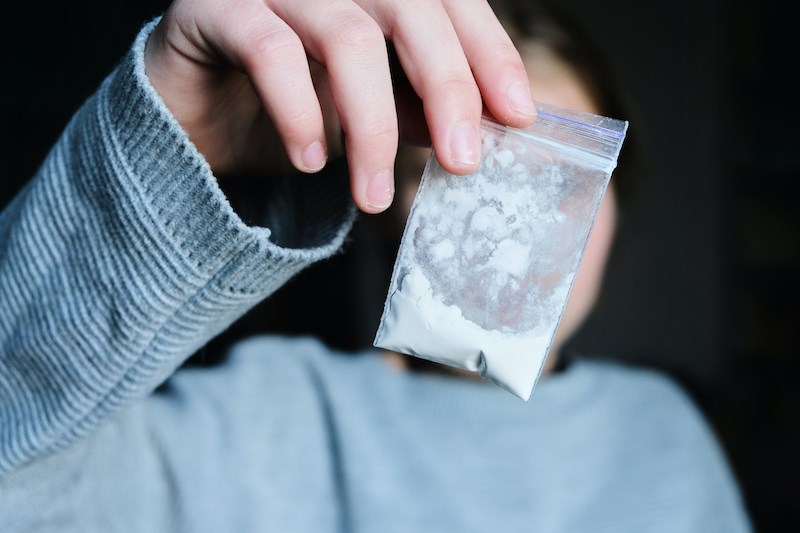In 2003, Insite became the first sanctioned supervised injection site in North America. It would turn out to be precedent-setting: there are now dozens of similar sites across Canada, recognized as essential health services to address the overdose crisis.
The “sanctioned” part is key. Twenty years ago, the idea behind these facilities was not so popular. The very first site was opened in 1989 in Switzerland and even though it proved successful there, it took a long time for the idea to take hold here. What pushed those in power to ultimately approve the opening of one in Vancouver? It was people who use drugs – in particular, the Vancouver Area Network of Drug Users (VANDU).
In truth, VANDU and community organizers were operating supervised injection sites for years before Insite. It was a response to the HIV and AIDS crisis in Vancouver that was taking the lives of people in the community while the government stood on the sidelines. Sound familiar? It should, because it’s the community that’s leading the way for safer supply in response to the current overdose crisis.
Knowing what's in the drug supply can save lives
This summer the Drug User Liberation Front (DULF) showed how safer supply can work in the hands of people who use drugs. They held two events where heroin, meth, and cocaine were distributed to people who use drugs in Vancouver’s Downtown Eastside. The difference between what people were getting from DULF and what they could’ve gotten on the street from their dealer? They knew exactly what was in their drugs. And that’s how we can save lives.
What’s been fuelling the public health emergency are not the drugs themselves, but the not knowing what’s in the drugs. This is the direct result of prohibition. An unregulated drug supply means that the substances bought and sold on the street could contain any number of adulterants. If a person thinks they’re buying heroin and it’s actually fentanyl and they don’t know it, that’s where the real danger of a toxic drug poisoning lies. As we’ve seen over the five-plus years of this emergency, it’s the not knowing that is killing people. The drug supply has become increasingly unpredictable, meaning people are increasingly unlikely to know what’s in the drugs they’re taking.
Now imagine the same thing was happening with alcohol. If someone went to a bar a purchased a glass of wine, but, unknown to them, it had been chemically adulterated with methanol because it’s cheaper and easier to produce. That person might die of methanol toxicity. It’s actually not that hard to imagine. Alcohol prohibition in the 1920s led to thousands of deaths for the same reason that drug prohibition today is killing thousands of Canadians – unregulated substances equals unknown, and often deadly, substances.
There’s no time to wait for the government to stop dragging its feet on safer supply, which is why community is once again leading the way. What DULF accomplished by distributing drugs was to ensure that every person knew what they were consuming. This approach is inspired by cannabis compassion clubs and buyers clubs, both of which emerged in the 1980s and 1990s in response to the AIDS epidemic. At the time, compassion clubs functioned to provide a safe place for people to access medical cannabis and connect with a range of health services, while buyers clubs procured life-saving treatment for patients living with HIV and AIDS when government inaction limited access to these medicines. Again, any of this sound familiar?
City council greenlights compassion club motion
Last week, Vancouver City Council unanimously passed a motion to support a community-led compassion club. The motion up for debate was whether the City would support a proposal by DULF and VANDU to get an exemption from Health Canada to operate a compassion club. A compassion club would involve community groups distributing drugs like heroin and meth after they’ve been drug tested for contents. It’s a way of providing a safer alternative to the unregulated drugs that are killing people. The proposed exemption would be a way to work around the Controlled Drugs and Substance Act which bans the distribution of unregulated drugs.
It makes sense that the same city that saw the community lead the way with supervised injection sites and needle exchanges is now witnessing the community do the same with safer supply. Maybe that’s why City Council approved the motion. The reality is safer supply and decriminalization – which the City is trying to get approval for from Health Canada – go hand-in-hand.
Decriminalization doesn’t stop people from relying on drug gangs to manage supply and demand. Safer supply not only saves lives, but it also brings us one step closer to regulation and ending this deadly drug regime run by organized crime. Everyone who has spoken out in favour of decriminalization should do the same for safer supply, from politicians to police chiefs. And if they aren’t, ask yourself why not? What do they have at stake in keeping the status quo?
Compassion clubs aren't a radical response to the overdose crisis, they’re a compassionate response to saving lives. And until the federal government makes the necessary changes to our failed drug policies, we must support community-led actions like DULF’s – and VANDU’s before them – to courageously defy deadly laws in order to save lives.
Guy Felicella is a Peer Clinical Advisor at the BC Centre on Substance Use. Follow him on Twitter at @guyfelicella.




